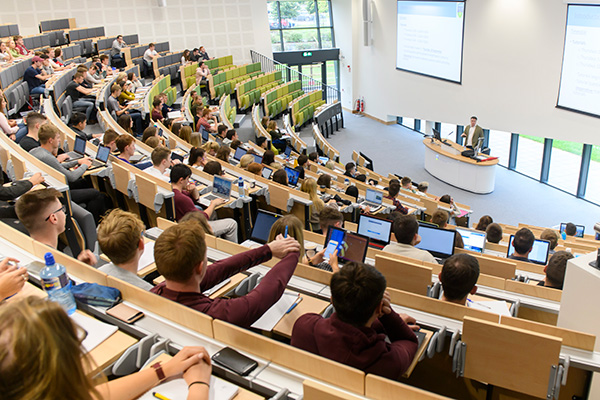General Information for Sociology Graduate Students
Students are expected to maintain a real presence within the School during the period of their studies, to attend supervisory sessions as defined by their supervisor and Doctoral Studies Panel or Research Masters Panel, to participate in the PhD/MLitt Roundtable discussions organised by the School of Sociology, to take graduate modules offered by the School of Sociology and by the College of Social Sciences and Law Graduate School and to reside within a reasonable travelling distance of UCD.
1. Ethical Standards
UCD is committed to the maintenance of the highest ethical standards in its research. All research that involves either human or animal subjects carried out by UCD researchers requires full ethical review or an exemption from full ethical review. This process is under the jurisdiction of the UCD Research Ethics Committee. Full information is available HERE.
2. Study/research outside UCD
The School of Sociology acknowledges that students may benefit from travel/research elsewhere. This might entail:
(i) taking courses which are relevant to the student’s training and providing that the case for taking such courses has been made to the student’s Supervisor/Supervisory Panel and with the agreement of her/his Head of School.
(ii) spending part of the academic year resident at archives or other appropriate research sites. Where such research trips are conducted during the regular teaching term of the student’s institution, students must have the prior approval of their Supervisor/Supervisory Panel and Head of School.
3. Conferences and Presentations
One of the core features of doing a PhD or MLitt is sharing your ideas with others. Presenting papers at the Sociology PhD/MLitt Roundtable, School seminars and sociology conferences provides valuable experience in structuring these ideas to communicate them effectively with colleagues in the field, while also offering an opportunity for feedback that may improve, develop or refine your research. Students are expected to attend the Roundtable and School Seminars regularly and should give at least one seminar presentation each year. Papers based on ideas developed from the literature review, or empirical findings from the research, are very suitable topics for conference presentations, which often, in turn, form the basis of individual chapters of the thesis and/or academic publications.
During the course of the PhD or MLitt, students are expected to be active members of the Sociological Association of Ireland (or an equivalent organisation) and presenting a paper on aspects of their research at the annual SAI conference (or its equivalent) is considered the norm. In addition, as research students progress through the programme, they are expected to attend major international sociology conferences and present their research there. The School provides limited funding to assist with the costs of attending and presenting at conferences, and the College's Graduate School also provides funding for conference presentations.
4. Publications
One of the goals of doing a PhD or MLitt is to publish the thesis - whether as a book or a series of journal articles, etc. - and thus contribute to public debate about important sociological issues. Therefore, in addition to completing the thesis, the school expects students to become progressively more involved in preparing material for publication. This is viewed as significant both for career development issues and in terms of developing writing and analytical skills that will be of assistance in writing the actual thesis. Throughout the publication process, the student's supervisors are likely to be involved in reading drafts of the submission and suggesting any appropriate changes. In addition, the supervisors may help identify suitable outlets to which the student's work could be submitted. Typically publications are based on conference presentations, which in turn are based on the thesis material itself. In this way there is considerable overlap between these various activities.
During the first year of the PhD, students should seek to publish a short book review or review essay on material relevant to their research. During the second year of the PhD, when significant progress should have already been made on various sections/chapters of the thesis, students should write and submit a paper for publication. This paper may be submitted to publications such as the peer-reviewed Irish Journal of Sociology or any other suitable outlet. In the third year of the PhD, a further paper should be submitted to an international peer-reviewed journal.
5. Teaching
For students wishing to pursue an academic career, gaining experience in teaching is often essential for securing an academic position. Research students are normally expected to become progressively more involved in the teaching of the School. As such, students typically are involved in teaching undergraduates through tutorial presentation, correcting assignments or lecturing. As they progress through their programme students are also expected to develop a teaching portfolio that reflects their broad sociological knowledge as well as their specific research interests. This can involve contributing to lectures for undergraduate modules under the supervision of a module coordinator. These activities are considered essential for the career development and are strongly supported within the School. In UCD, the Centre for Teaching and Learning provides a range of courses oriented towards the development of effective teaching skills, and students are expected to attend appropriate courses.
6. Supervision (Doctoral Studies Panel or Research Masters Panel)
Each student accepted onto the PhD or MLitt programme will be allocated a supervisory panel - Doctoral Studies Panel or Research Masters Panel. That normally comprises your principal supervisor and two additional advisors. In special circumstances, two members of the panel may be appointed 'main supervisors', although one of these will retain overall administrative responsibility for the student. A Research and Profession Development Plan (RPDP) is required and the student’s Panel will work with them on developing this. The role of the supervisors is to direct and advise the student in developing a focused research question, conducting the research, and completing the thesis. In addition to advice provided throughout the PhD or MLitt process, an important role of supervisors is to provide detailed written feedback on draft chapters, and to ensure that the student is making satisfactory progress in terms of career development generally. The main supervisor, in particular, can be expected to provide appropriate advice on preparing conference presentations and submitting material for publication in academic outlets.
Panel meetings should be held regularly and they may be held more often at different stages of the research, particularly as the research programme is being focused and refined. In advance of every meeting, the student should submit written work to their Panel. Following each meeting, a formal record (on an RPDP form) should be completed and signed, outlining what has been discussed and detailing any relevant activities that student or supervisor have undertaken to do for the next meeting.
7. Appeals Process
A student who wishes to appeal a decision of the Assessment Panel may do so through the procedures for a formal assessment appeal determined in the UCD Policy on Assessment Appeals. Information relating to Assessment Appeals can be found at: http://www.ucd.ie/appeals/
8. Conflict Resolution
For information on how to access conflict resolution support please refer to the document '(opens in a new window)Code of Practice for Conflict Resolution for Supervisors and Graduate Research Students'

